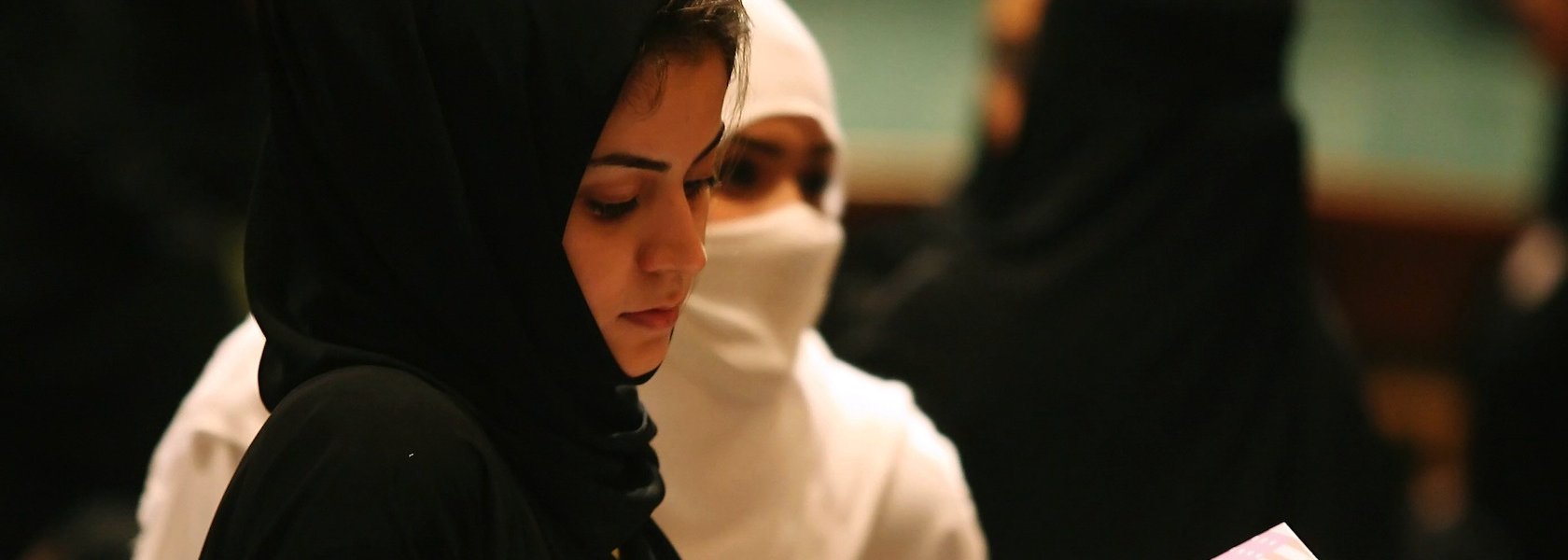FIDH – (Geneva, Paris) The report being released today by the Observatory for the Protection of Human Rights Defenders (an FIDH-OMCT partnership) is a far cry from the media frenzy that was caused by the announcement of symbolic reforms, such as that set out in the September 2017 Royal Decree (at last) giving Saudi women permission to drive. This report casts a harsh light on the scandalous situation of Saudi women human rights defenders who still have to cope with major restrictions to their rights. As women, they are subjected to a patriarchal regime that is steeped in gender inequality, and they must cope with a context that severely represses all voices of dissent. Women who report domestic violence or stand up as activists are confronted with unrelenting repression. Since they are not allowed to form movements or associations, they take refuge in social networks.
CHECK OUT THE SPECIAL WEBPAGE CREATED FOR THE REPORT: HTTP://CONDEMNEDTOSILENCE.FIDH.ORG/
Saudi Arabia is well known for the severe limits it imposes on women’s rights – the legal status of the woman being inferior to that of the man – in all fields, even in the simplest acts of daily life. Nonetheless, because of the economic necessity to end total dependence on oil, and because of the aspirations of young people who are taking over much of the social media, the authorities have announced that they would gradually make some concessions.
Yet, since 2016, the country has been experiencing unprecedented mobilisation by women standing up for their most basic rights, especially since they can now do it through social networks. There are now thousands of cyber-activists on the networks, most of them using accounts anonymously out of fear of reprisal.
Although in recent years the government has given indications of more openness, especially since the arrival of a ‘new generation’ of leaders, represented by the Crown Prince Mohammad Bin Salman, women are still exposed to a double vulnerability.
One is their status. The maintenance of the ‘male guardian’ status perpetuates gender inequality and condemns women to a minority status for their whole life. The Royal Circular of April 18, 2017 reforming this status raised great hope among women defenders, but little has changed. Women still must have the authorisation from a male guardian to travel abroad or to obtain a passport. And some women fear that nothing will ever change. Going beyond the texts, which are often unclear, the police and legal authorities can be especially brutal and discriminating, especially in the case of domestic violence.
The other area concerns the promises of the Saudi authorities to introduce reforms, which is still countered by the reality of the situation of human rights in a country that continues to repress all dissenting views, especially those of human rights defenders who are calling for far-reaching societal reforms.
The law still does not guarantee respect for basic rights such as freedoms of association, expression and peaceful assembly. Any attempt to set up a movement or an association is brutally crushed. Saudi law is not only rife with vague concepts that leave great leeway for the judges, but the laws meant to fight criminality and terrorism are deflected to criminalise the legal expression of any dissenting opinion. Dozens of defenders, bloggers, lawyers, and activists have been accused of ‘apostasy’, ‘atheism’, ‘insulting religion’, ‘terrorism’, ‘destabilising the State’, ‘attempting to influence public opinion’, or even ‘creating an illegal organisation’, and are now spending long years in prison.
The report published by the Observatory today speaks of the fight for the emancipation of women in Saudi Arabia in a tightly circumscribed human rights environment.
It traces the symbolic path of some of them. Most of them are cyber-activists who use social networks anonymously in order to denounce all the arbitrary treatment they must deal with. There are also activists who publicly announce their position as human rights defenders and become involved with emblematic causes like putting an end to male guardianship, or with the possibility of setting up an association for the defense of women’s rights or, more broadly, human rights, or running in the municipal elections. All of them are taking risks and are very vulnerable.
In November 2017, blogger Naimah Al-Matrod was sentenced to six years in prison for participating in a peaceful protest movement in the eastern coastal part of the country about economic, social and political claims, and for having called for the release of political prisoners and for democratic reforms.
All these women are already subjected to pressure from their families and are now forced into a silence imposed by the government. They may be threatened with prosecution, arbitrarily arrested, put in prison, banned from travel and forbidden to speak in public. Following the opening of legal proceedings, most of them see the sword of Damocles hanging over their head for several years in order to keep them silent.
The report is available on the FIDH (in French, in English and in Arabic) and OMCT websites (in English, in French, and in Arabic).
Press contacts:
FIDH: Audrey Couprie : +33 6 48 05 91 57
OMCT: Delphine Reculeau: +41 22 809 49 39


